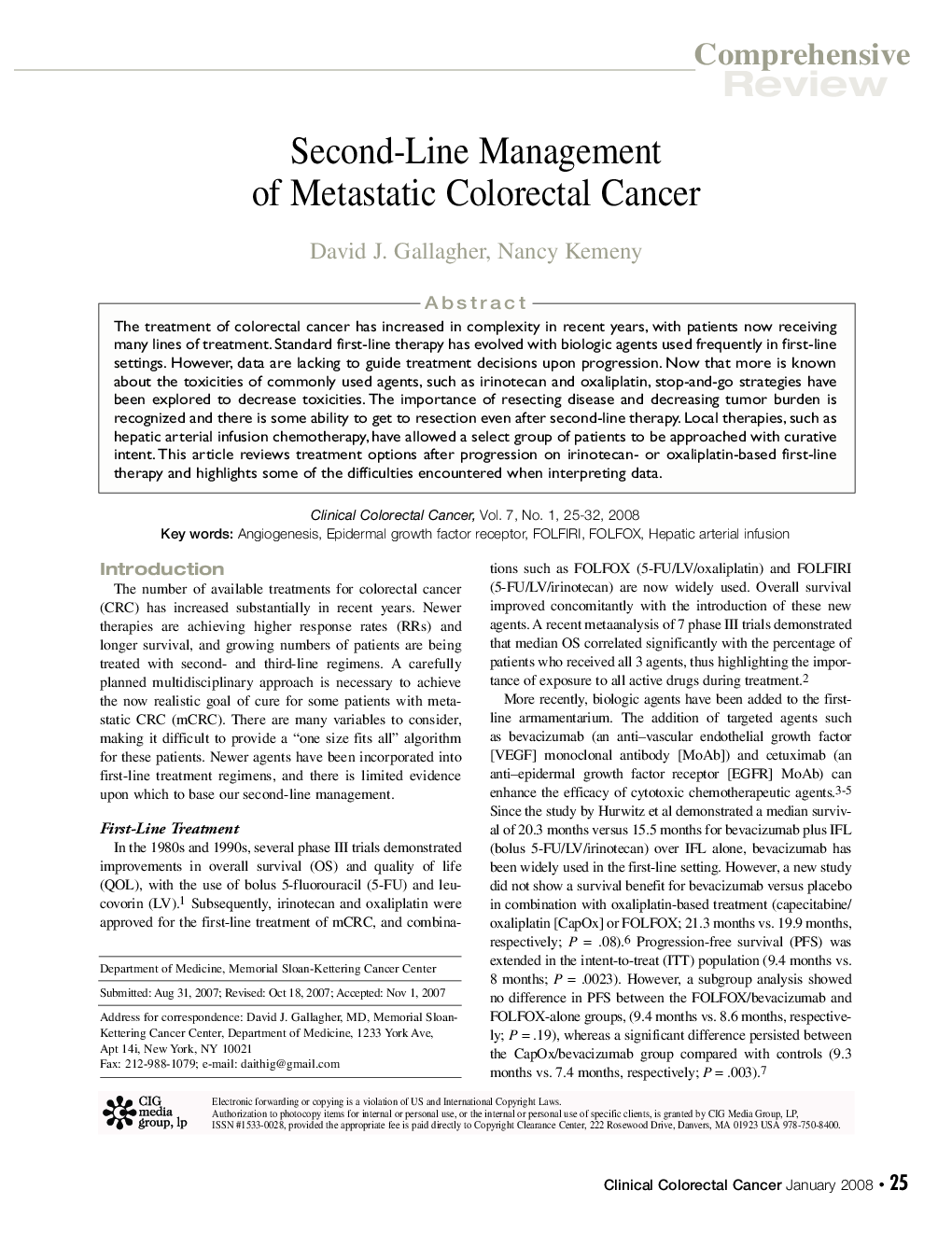| کد مقاله | کد نشریه | سال انتشار | مقاله انگلیسی | نسخه تمام متن |
|---|---|---|---|---|
| 2751673 | 1149484 | 2008 | 8 صفحه PDF | دانلود رایگان |

The treatment of colorectal cancer has increased in complexity in recent years, with patients now receiving many lines of treatment. Standard first-line therapy has evolved with biologic agents used frequently in first-line settings. However, data are lacking to guide treatment decisions upon progression. Now that more is known about the toxicities of commonly used agents, such as irinotecan and oxaliplatin, stop-and-go strategies have been explored to decrease toxicities. The importance of resecting disease and decreasing tumor burden is recognized and there is some ability to get to resection even after second-line therapy. Local therapies, such as hepatic arterial infusion chemotherapy, have allowed a select group of patients to be approached with curative intent. This article reviews treatment options after progression on irinotecan-or oxaliplatin-based first-line therapy and highlights some of the difficulties encountered when interpreting data.
Journal: Clinical Colorectal Cancer - Volume 7, Issue 1, January 2008, Pages 25-32